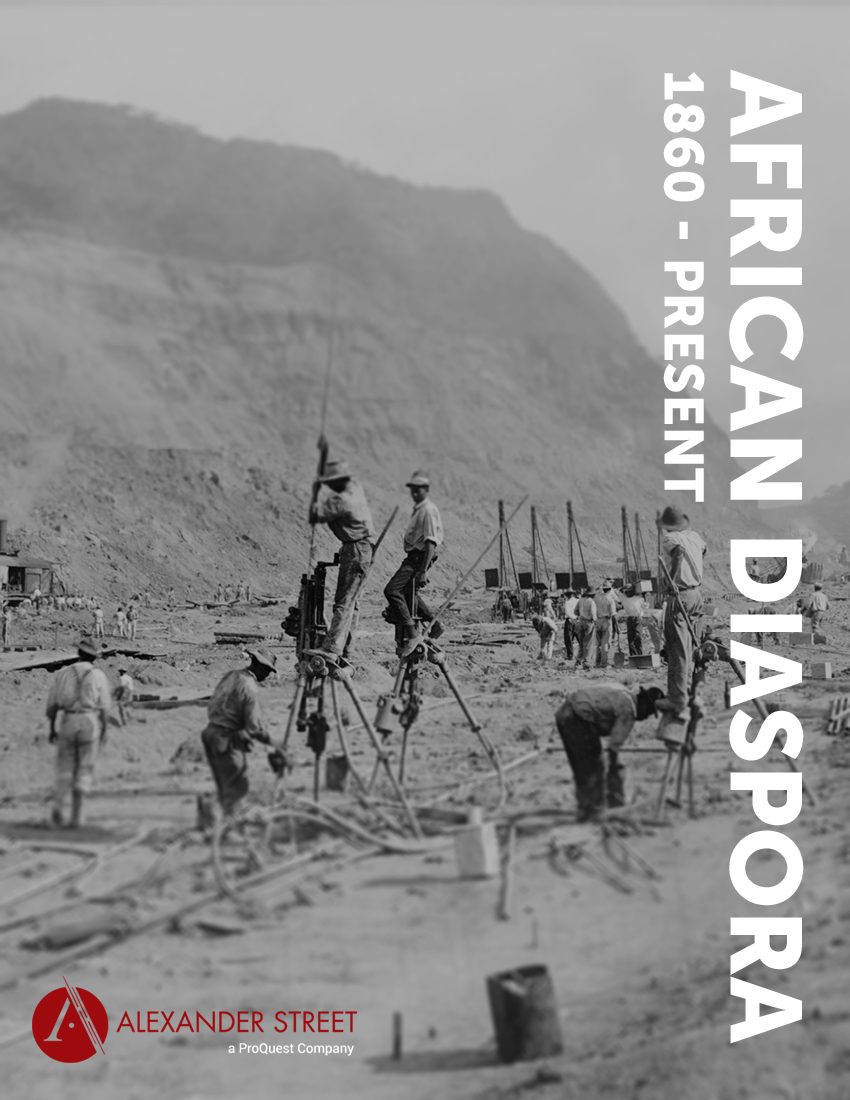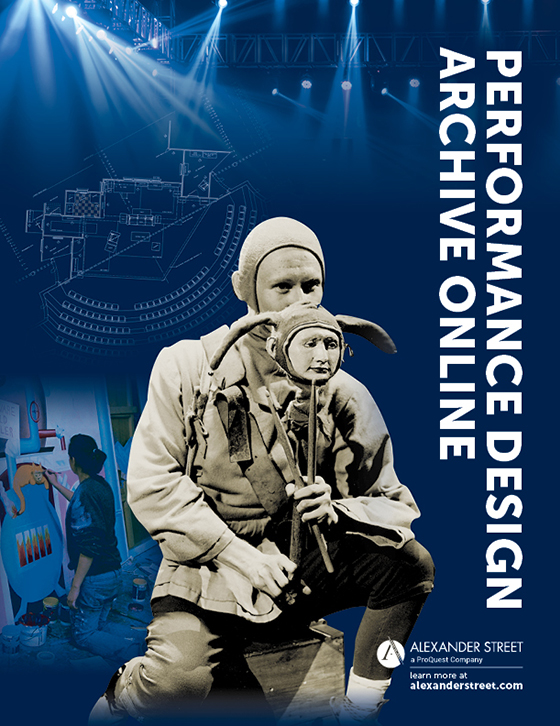
Black Drama: Third Edition
Black Drama, now in its third edition, contains the full text of more than 1,700 plays written from the mid-1800s to the present by more than 200 playwrights from North America, English-speaking Africa, the Caribbean, and other African diaspora countries. Many of the works are rare, hard to find, or out of print. More than 40 percent of the collection consists of previously unpublished plays by writers such as Langston Hughes, Ed Bullins, Willis Richardson, Amiri Baraka, Randolph Edmonds, Zora Neale Hurston, and many others.
Each play is extensively and deeply indexed, allowing both keyword and multi-fielded searching. The plays are accompanied by reference materials, significant ancillary information, a rich performance database, and images. The result is an exceptionally deep and unified collection that illustrates the many purposes that black theater has served: to give testimony to the ancient foundations of black culture; to protest injustices; to project emerging images of the New Black; and to give voice to the many and varied expressions of black creativity.
American Writers
The works from early 20th-century America include key writings of the Harlem Renaissance, works performed for the Federal Theatre Project, and plays by critically acclaimed dramatists through the 1940s. Included are the plays of Langston Hughes, Paul Laurence Dunbar, Zora Neale Hurston, Ira Aldridge, Shirley Graham, W.E.B. DuBois, William Wells Brown, Owen Dodson, Joseph Seamon Cotter, Alice Dunbar-Nelson, Randolph Edmonds, Angelina Weld Grimke, Georgia Douglas Johnson, May Miller, Willis Richardson, Eulalie Spence, and others. The plays address a wide range of struggles and triumphs, including migration to Northern cities, mothers keeping families together, exploitation by white land owners, interracial unity, racial violence, civil rights activism, and the black war hero.
American works from the later 20th century cover the Black Arts movement of the 60s and 70s, works performed by the Black Arts Repertory Theatre/School (BARTS), The Negro Ensemble Company, and other companies. The collection includes plays by Amiri Baraka (LeRoi Jones), Ed Bullins, Phillip Hayes Dean, Aishah Rahman, James Baldwin, Kia Corthron, Ossie Davis, Rita Dove, Charles Fuller, Ron Milner, Dael Orlandersmith, Sonia Sanchez, Ntozake Shange, Melvin Van Peebles, Joseph Walker, Richard Wesley, August Wilson, and many others. The plays explore themes including civil rights, desegregation, and a wide range of ideologies—integrationist and separatist, revolutionary nationalist.
“The plays of a real Negro theatre must be: 1. About us. That is they must have plots which reveal real Negro life as it is. 2. By us. That is they must be written by Negro authors who understand from birth and continual association just what is means to be a Negro today. 3. For us. That is, the theatre must cater primarily to Negro audiences and be supported and sustained by their entertainment and approval. 4. Near us. The theatre must be in a Negro neighborhood near the mass of ordinary Negro people.”
– W.E.B. Du Bois, “Krigwa Players Little Negro Theatre,” in The Crisis, v. 32, July 1926, pp. 134–136
The African Diaspora
African and Caribbean drama is represented by a wide collection of plays from Ghana, Uganda, Sierra Leone, Nigeria, Kenya, South Africa, the West Indies, the United Kingdom, and other parts of the world. It includes works by writers such as David Edgecombe, Femi Osofisan, Zakes Mda, John Ruganda, Dennis Scott, ‘Zulu Sofola, Paul Boakye, H.I.E Dhlomo, Gus Edwards, Errol John, Fatima Dike, Francis D. Imbuga, Clifford Sealy, Edgar White, Joe Coleman de Graft, Richard Rive, Bole Butake, Matsemela Manaka, Earl Lovelace, Errol Hill, Derrick Walcott, and many others. The plays deal with the social and political ills stemming from colonialism, slavery, and apartheid; the struggle for independence; African history; and neo-colonialism. Of particular interest is material written as “Township Theatre” in South Africa under apartheid and during the development of black grassroots urban theatre.
Remembering James Hatch, Archivist of Black Theater
Black Drama wouldn't be possible without the advisement and contributions of James Vernon Hatch (1928-2020)--playwright, historian, and curator of the landmark Hatch-Billops Collection. See this blog post authored by Will Whalen, the Director of Global Content at Alexander Street, who recalled meeting scholar and historian James (“Jim”) Hatch who died on February 14, 2020. The subsequent partnership between Professor Hatch and Alexander Street Press resulted in a profound collection of primary materials on the history of Black Drama.
Content Selection
We consulted several important bibliographies in creating the database, and selected content under the further guidance of our editors and advisors, including James Vernon Hatch. The collection’s unpublished portion has evolved mostly under the direction of the living playwrights themselves.










